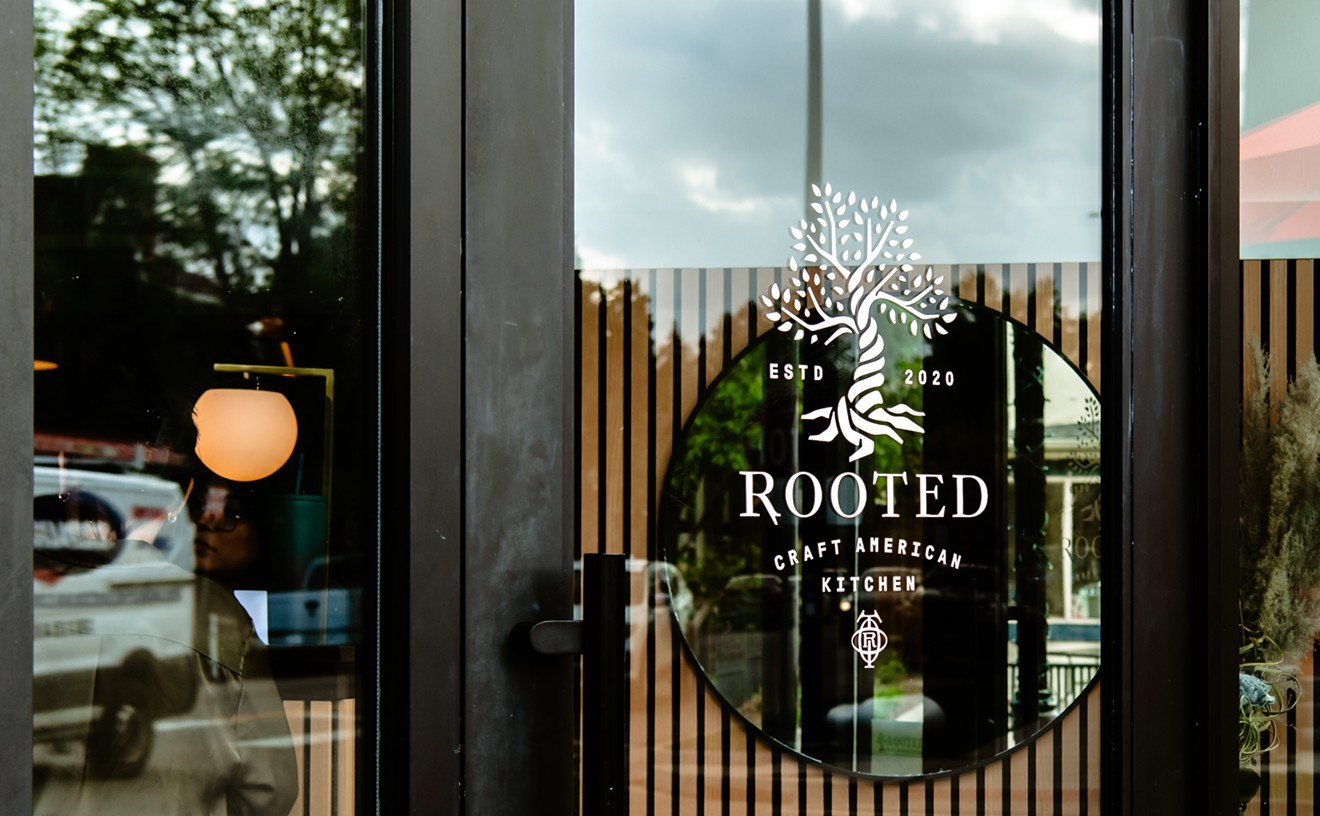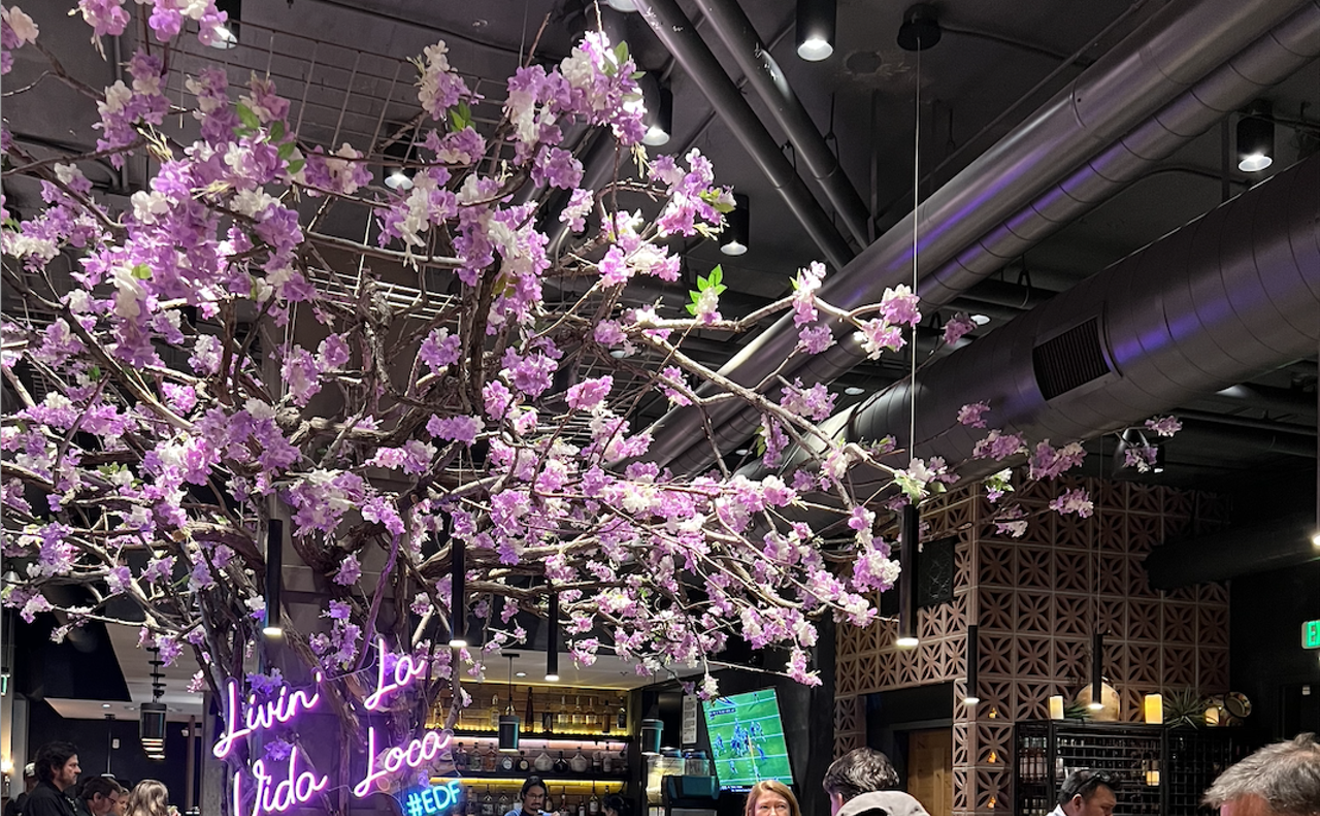I was not born in Florida, thank God. I did not grow up there. I actually spent only a short portion of my life in the Sunshine State — a few months buried to the eyes in the damp and lizard-infested sloughs — and most of that time was spent slaving away in the murderous heat of some of the most embarrassing, deranged kitchens I have ever known. I never once saw the beach, had only a glancing association with the nearby ocean, and when I got home from work rarely wanted to do anything more than wring the humidity out of my brain, strip naked and drape myself bodily over the vents of the nearest air conditioner. On those few nights when I managed to peel myself off the carpet and mule-kick my up-North metabolism into something approximating a down-South footing, I would drive into Tampa or out to some swampy shitkicker bar in the distant exurbs, pant like a dog, sweat like a congressman and try to pretend for a few hours that every breath I took wasn't like drowning a little bit at a time.
I didn't experience Florida in any traditional sense, but I still know Florida. I know it the way a man remembers his first marriage to a shrew (hyperbolizing the bad, perhaps, but finding an emotional truth in the exaggeration), the way a convict can recall the precise dimensions of his cell many years after having been sprung. And I am not exaggerating when I say that I loathed nearly everything about my time in America's dangling wang.
Save for the Cuban food.
Driven by a need for something sweet to reward myself for surviving another night in paradise, on a few memorable occasions I found myself hauling up in front of some garishly lit storefront or street-side stand, where I'd wilt onto a stool or into a metal tube chair and get Cuban coffee as a pick-me-up — served either boiling hot, in a wide white mug, rich with steamed milk and smelling of burnt sugar, or black as death and offered by the thimble, sipped as a restorative shot of pure, vicious energy. It prepared me for what followed: the bright flares of picadillo, black beans and rice, Cuban arroz con pollo and croquetas fresh out of the fryer and bleeding grease through three layers of butcher paper; Cuban sandwiches and more Cuban coffee and pots of ropa vieja prepared as family meals with pure, wild-eyed genius by line cooks who would otherwise spend the rest of their work days steaming potatoes and frying fish dinners for rubes.
As much as I hated Florida, as much as I loathed the heat and the damp and the bugs and the tourists and the hot rain and the green and fecund stink of that detestable swamp full of fried fish, lizards and pain, I hated the food more. There may have been outposts of goodness and decency, but I was not given those addresses. What I think of instead when I think of Florida in the mid-'90s is one enormous Fisherman's Platter that stretched clear from one coast to another, a million chain restaurants, the worst sins of California cuisine writ hugely across pizza crusts covered in lamb and olives — a wasteland of bad ideas and suck broken only here and there by the food of ex-pat Cubanos. So as much as I hated Florida and its theme restaurants, I would get in the car right now and drive thousands of miles just for the promise of, at the end of the trip, an odd, beautiful moment in some side-street cafe where the first tinny blast of refrigerated air and the first sip of a burnt-sugar cafe con leche or cortadito combined to make the next minute or hour or day seem almost survivable.
But fortunately, I never again have to consider that demon's bargain, never have to weigh the benefits of a proper Cuban sandwich against the detriments of death by simultaneous drowning and spontaneous combustion. Because rather than me having to ever, ever go back to Florida, a tiny bit of Florida has wised up, broken free from its geographic prison and traveled west to Denver, where it's planted its flag as Buchi Cafe Cubano.
There is virtually nothing to this small storefront space in northwest Denver, which is as it should be. A patio out front, soft yellow walls, a couple of framed prints of things Cubano, a counter, a few tables, a coffee machine, a small kitchen tucked away in a closet in the back of the room, a cash register. The plates are paper, the utensils plastic, the sandwiches that make up the bulk of Buchi's menu delivered wrapped in waxed paper — quickly and with little fuss. As at a proper barbecue restaurant or a good hamburger stand, there is nothing to distract you from food that's gorgeous enough on its own, food that stands as both goal and ultimate reward. All is quick, all is casual, all is almost transient in its impermanence (with little left behind on the finished tables but empty bottles of Limonata and Materva and the crushed papers of sandwiches like cast-off snakeskins). In fact, the two most solid things at Buchi are the plain white cups in which is served what I swear has got to be the best coffee ever, and owner Emmett Barr standing in the back, between the kitchen and the register, overseeing his tiny piece of transplant paradise.
I did my Florida time in and around Tampa. Barr did his in the Keys — closer to Cuba, as close as an American can legally get without wading out into the ocean and hoping for the tides to carry him away. And now he's brought the taste of Cuba to Colorado, setting up shop like some kind of grinning pusherman, knowing full well that the addictive qualities of Cuban bread, cane sugar and pork products would win him a legion of dedicated regulars in the mountain West. His Cuban sandwich — called the Cuban Mix, and the centerpiece of his board — is the best I've had in ten years, by a long stretch. He gets his heavily larded, impossibly crispy Cuban bread custom-made by some secret baking prodigy whose name he will not divulge. His ground pork is subtly spiced and deliciously fatty — roasted and then chopped into a kind of rough pâté that holds its shape when squeezed between two halves of a sandwich roll. Add to this sliced ham, thin slices of pickle, Swiss cheese, yellow mustard and (the only inclusion that struck me as odd) onions, and you have a sandwich so much greater than the sum of its parts — a perfect rendition of the panini-pressed (or grill-bricked) sammies I remember picking up at midnight from spectral roadside shops in Eff-El-Ay that always smelled of cumin and cinnamon and bled neon into the night like a wound.
When I mentioned this to Barr on my first visit to Buchi, he smiled, asked a couple of polite questions about my time down south, but mostly just nodded. He's been up and running for almost a year now, has won over the neighborhood, is working on the city. He knows exactly how good his stuff is.
Beyond the Cuban, Barr does breakfast sandwiches made of various combinations of eggs and cheese and ham. He does pan con lechón (nothing but roast pork, chopped fine, and grilled onions, delicious in its gut-punch simplicity and tasting, more than anything, like a Philly cheesesteak made of pork); a Bodega sandwich with turkey, Swiss, avocado and mayonnaise spiked with Key lime juice; and the Aye Conyo, whose name is taken from a common exclamation that, in translation, is uniquely and beautifully vile, and that features a little bit of everything on the board, including spicy pepperoni, turkey, hot peppers and tomato. I'd be perfectly happy if fantastic sandwiches and the best cup of coffee ever were all that Barr and his kitchen did. But there's Cuban bread pudding, too, and guava pasteles under the cake dome on the counter. This single-man kitchen can also throw together a simple avocado salad with onion mojo or fry up a (paper) plate of spicy chicken empanadas with rich green chimichurri that has an aftertaste like summer-morning grass clippings.
Barr, of course, has plans to do even more. He's applied for a liquor license and hopes to put in a limited bar (a few rums, a little sangria). He's looking at moving into dinners, too. But for now, it's more than enough that Buchi offers Sunday brunch, a prix fixe mix of everything that's great in the Cuban canon: coffee and flan; gentle, almost bland arroz con pollo, the perfect hangover breakfast; picadillo rich with cinnamon and studded with raisins, as good as that staff meal cooked by some homesick Cubano hardboy, whipping it up from gut and memory, trying to make it just like his mom did, and her mom before her; shredded chicken with peas, so gently spiced as to be almost subliminal; big chunks of pork (lechón asada), roasted and plated beside vaguely sweet black beans; fried plantains and mounds of white rice. For me, sitting there on a lazy afternoon with the mountain sun streaming down, picking at the single plate on which all of this goodness is heaped, it's like instant recall — bringing back to me everything that made Florida worthwhile, that has, on occasion, the power to overshadow in my mind the far plainer and more powerful aggravations of the place. A bite of picadillo, a mouthful of lechón asada, and I can't help but smile. Can't help but be brought back to other, hotter, worse days, where such moments were the only good ones I had.










